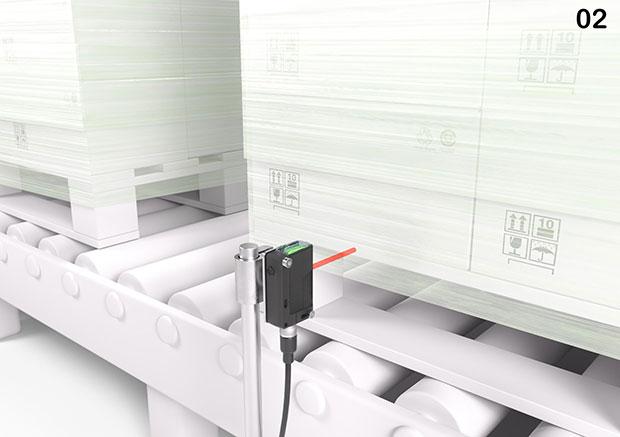The new 36 series from Leuze offers universal sensor solutions to ensure a high level of automation and detect objects even at large operating ranges. Manufacturers and operators of highly automated systems benefit from the cost-optimised design of these sensors. They are able to reliably detect objects with different optical properties at long distances even allowing for vibration, ambient lighting interference, or soiling.
 Flexible implementation
Flexible implementation
Leuze offers the sensors, which are certified to protection class IP67, with different operating principles: They are available as sensors with background suppression (with an operating range of up to 2.5 meters), as retro-reflective photoelectric sensors (up to 17 meters), or as through-beam photoelectric sensors (up to 80 meters). The high-performance sensor design provides an extremely high function reserve. This ensures that objects are reliably detected even if, for example, sources of interference are present. A highlight of the range is the special retro-reflective photoelectric sensors for detecting objects with depolarising properties, e.g. film-wrapped pallets.
Conventional retro-reflective photoelectric sensors are unable to detect these pallets reliably, owing to the depolarising properties of the tensioned film. Leuze’s new PRK36.D retro-reflective photoelectric sensor has special optics to enable depolarising objects to be detected with absolute reliability and cover an enormous range of applications.
Choice of connections
The sensors are available both with M12 connection sockets and with different ready-made connection cables as well as matching mounting accessories. This means that integration is simple, even in existing systems. In addition, this attractively priced sensor line reliably detects objects on the basis of tried-and-tested operating principles, and its special solutions also ensure the reliable detection of reflective objects.
Operation of the devices is intuitive, and indicator LEDs that are clearly visible from all sides, as well as a switching output with either PNP or NPN design, enable easy commissioning and a high level of compatibility with diverse applications.




Comments are closed.